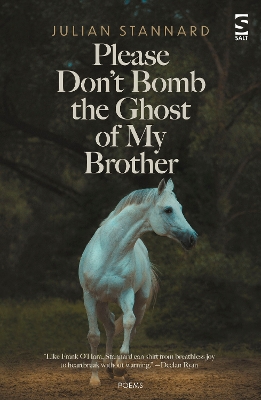Salt Modern Poets
2 total works
Heat Wave is a form of poetic cabaret,‘What good is sitting, alone in your room?/ come hear the music play!’ If a cabaret is full of high jinks it can also land punches – truth can be masked by the burlesque and the grotesque: ‘Tell all the truth but tell it slant’.
Luke Kennard has said of Stannard’s writing, ‘I know of few other poets who can write of cruelty, hysteria and disappointment with such levity and grace.’ Will Eaves speaks of a ‘comic vitality’. Heat Wave seeks to unsettle and wrong-foot; it refuses to adopt a sententious or holier than thou attitudes regarding the many crises which confront us. The poems subvert as well as entertain.
Critics have noted ‘a tonal control and simultaneous considerations of matters mordant and gleeful.’ The reader might weep and laugh on the same page. The lyrical and the demotic might walk hand in hand.
Julian Stannard has been described as the poet of cabaret. His poems sing and weep in equal measure; a poetry of wretchedness and hilarity, of discombobulation and the bizarre. In his new collection a dead brother returns on a white horse, a musical stag slips off to New York, the Kray Twins reappear, a summer pudding is carried across a heath, a pair of buttocks escapes their owner, a couple makes love on a rain-soaked stoop, the Mongols catapult concubines over the parapets, a dead friend walks out of his grave like a twenty-first century Lazarus, a blind boy breaks into the Kelvingrove Gallery and makes off with Salvador Dali’s crucifixion, Ezra Pound – half fish, half man – rises to the surface of the Venetian lagoon, and after ten years in the Cicada Lunatic Asylum the narrator finds peace in the Umbrian town of Bastardo.
Please Don’t Bomb the Ghost of my Brother is international in scope and tirelessly ludic. The poems engage with the Covid pandemic, the war in Ukraine and personal loss. Stannard’s poems sing and weep in equal measure: a poetry of wretchedness and hilarity, of discombobulation and the bizarre, mindful of lacerating loss and the redemptive power of strangeness, a special type of humour. They supply a feast of stories.

